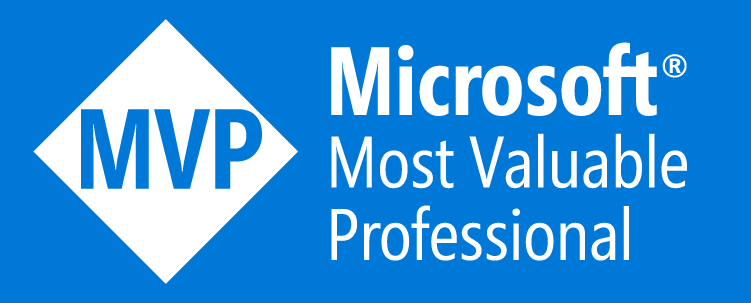本文告诉大家如何使用 Silk.NET 创建 OpenGL 空窗口项目。在 dotnet 基金会下,开源维护 Silk.NET 仓库,此仓库提供了渲染相关的封装逻辑,包括 DX 和 OpenGL 等等的封装,利用此封装可以用来代替原有的 SharpDx 等库。这是一个全新写的项目,使用上了 dotnet 和 C# 很多新的特性,相对来说也很活跃,我准备开始入坑这个项目
本文的例子完全是从 https://github.com/dotnet/Silk.NET 里面抄的,这是官方的使用 OpenGL 的例子
当前是 2021.12.22 官方完成的应用高层封装的只有 OpenGL 一个,加上 Vulkan 版本。基础底层封装完成了 DirectX 系列(但还完成没有 D2D 部分)和 OpenAL OpenCL OpenGL OpenXR Vulkan SDL 等
本文的例子是采用高层封装的 OpenGL 创建空窗口。根据官方 OpenGL Tutorials 的 Tutorial 1.1 - Hello Window 的代码,只需一个 Program 类即可完成启动应用
在开始之前,先通过 NuGet 安装 Silk.NET 库,对于新项目格式,可以编辑 csproj 项目文件,修改为如下代码
<Project Sdk="Microsoft.NET.Sdk">
<PropertyGroup>
<OutputType>Exe</OutputType>
<TargetFramework>net6.0</TargetFramework>
<ImplicitUsings>enable</ImplicitUsings>
<Nullable>enable</Nullable>
</PropertyGroup>
<ItemGroup>
<PackageReference Include="Silk.NET" Version="2.11.0" />
</ItemGroup>
</Project>
在 Main 函数里面,使用进行创建窗口。创建窗口需要初始化创建所需参数,在 Silk.NET 提供了预设的选项,如下面代码
var options = WindowOptions.Default;
此预设的代码等同于如下配置
var options = new WindowOptions
(
true,
new Vector2D<int>(50, 50),
new Vector2D<int>(1280, 720),
0.0,
0.0,
new GraphicsAPI
(
ContextAPI.OpenGL,
ContextProfile.Core,
ContextFlags.ForwardCompatible,
new APIVersion(3, 3)
),
"",
WindowState.Normal,
WindowBorder.Resizable,
false,
false,
VideoMode.Default
);
通过 GraphicsAPI 可以看到默认采用的是 OpenGL 作为渲染。在 ContextAPI 可选的参数,当前有三个,但是如下面代码注释,当前还没有完成 Vulkan 的高层封装
/// <summary>
/// Represents which API the graphics context should use.
/// </summary>
public enum ContextAPI
{
/// <summary>
/// Don't use any API. This is necessary for linking an external API, such as Vulkan, to the window.
/// </summary>
None = 0,
/// <summary>
/// Use Vulkan. Silk.NET doesn't support this yet.
/// </summary>
Vulkan,
/// <summary>
/// Use core OpenGL. This is standard for software intended for desktop computers.
/// </summary>
OpenGL,
/// <summary>
/// Use OpenGL ES. This is standard for software intended to be compatible with embedded systems, such as phones.
/// </summary>
OpenGLES
}
获取到默认的创建选项之后,如果需要修改窗口创建参数,可以修改对应的属性。例如修改窗口尺寸等
options.Size = new Vector2D<int>(800, 600);
options.Title = "LearnOpenGL with Silk.NET";
完成窗口创建参数配置,即可通过 Silk.NET.Windowing.Window 的 Create 方法创建窗口,如下面代码
private static IWindow _window;
private static void Main(string[] args)
{
//Create a window.
var options = WindowOptions.Default;
options.Size = new Vector2D<int>(800, 600);
options.Title = "LearnOpenGL with Silk.NET";
_window = Window.Create(options);
}
完成窗口创建之后,可以使用 Run 方法执行代码
//Run the window.
_window.Run();
在执行 Run 方法时,将会和 WPF 一样开启消息循环。为了实现窗口里面的初始化逻辑,需要在 Run 之间加上事件
_window.Load += OnLoad;
_window.Update += OnUpdate;
_window.Render += OnRender;
修改之后的 Main 函数如下
private static void Main(string[] args)
{
//Create a window.
var options = WindowOptions.Default;
options.Size = new Vector2D<int>(800, 600);
options.Title = "LearnOpenGL with Silk.NET";
_window = Window.Create(options);
//Assign events.
_window.Load += OnLoad;
_window.Update += OnUpdate;
_window.Render += OnRender;
//Run the window.
_window.Run();
}
在 OnLoad 里面,可以进行很多初始化逻辑,例如获取输入键盘内容,如下面代码
private static void OnLoad()
{
//Set-up input context.
IInputContext input = _window.CreateInput();
for (int i = 0; i < input.Keyboards.Count; i++)
{
input.Keyboards[i].KeyDown += KeyDown;
}
}
默认拿到的键盘只有一个,在 KeyDown 函数,可以通过参数判断当前按键
private static void KeyDown(IKeyboard arg1, Key arg2, int arg3)
{
//Check to close the window on escape.
if (arg2 == Key.Escape)
{
_window.Close();
}
}
而 OnUpdate 和 OnRender 方法分别是做具体的渲染准备和渲染的逻辑,这些就不是本文的内容了
以下是 Program 的代码
using Silk.NET.Input;
using Silk.NET.Maths;
using Silk.NET.Windowing;
namespace WemkuhewhallYekaherehohurnije
{
class Program
{
private static IWindow _window;
private static void Main(string[] args)
{
//Create a window.
var options = WindowOptions.Default;
options = new WindowOptions
(
true,
new Vector2D<int>(50, 50),
new Vector2D<int>(1280, 720),
0.0,
0.0,
new GraphicsAPI
(
ContextAPI.OpenGL,
ContextProfile.Core,
ContextFlags.ForwardCompatible,
new APIVersion(3, 3)
),
"",
WindowState.Normal,
WindowBorder.Resizable,
false,
false,
VideoMode.Default
);
options.Size = new Vector2D<int>(800, 600);
options.Title = "LearnOpenGL with Silk.NET";
_window = Window.Create(options);
//Assign events.
_window.Load += OnLoad;
_window.Update += OnUpdate;
_window.Render += OnRender;
//Run the window.
_window.Run();
}
private static void OnLoad()
{
//Set-up input context.
IInputContext input = _window.CreateInput();
for (int i = 0; i < input.Keyboards.Count; i++)
{
input.Keyboards[i].KeyDown += KeyDown;
}
}
private static void OnRender(double obj)
{
//Here all rendering should be done.
}
private static void OnUpdate(double obj)
{
//Here all updates to the program should be done.
}
private static void KeyDown(IKeyboard arg1, Key arg2, int arg3)
{
//Check to close the window on escape.
if (arg2 == Key.Escape)
{
_window.Close();
}
}
}
}
按下 F5 运行代码,即可看到创建了空窗口
本文会经常更新,请阅读原文: https://blog.lindexi.com/post/%E4%BD%BF%E7%94%A8-Silk.NET-%E5%88%9B%E5%BB%BA-OpenGL-%E7%A9%BA%E7%AA%97%E5%8F%A3%E9%A1%B9%E7%9B%AE%E4%BE%8B%E5%AD%90.html ,以避免陈旧错误知识的误导,同时有更好的阅读体验。
如果你想持续阅读我的最新博客,请点击 RSS 订阅,推荐使用RSS Stalker订阅博客,或者收藏我的博客导航
 本作品采用
知识共享署名-非商业性使用-相同方式共享 4.0 国际许可协议
进行许可。欢迎转载、使用、重新发布,但务必保留文章署名林德熙(包含链接:
https://blog.lindexi.com
),不得用于商业目的,基于本文修改后的作品务必以相同的许可发布。如有任何疑问,请
与我联系
。
本作品采用
知识共享署名-非商业性使用-相同方式共享 4.0 国际许可协议
进行许可。欢迎转载、使用、重新发布,但务必保留文章署名林德熙(包含链接:
https://blog.lindexi.com
),不得用于商业目的,基于本文修改后的作品务必以相同的许可发布。如有任何疑问,请
与我联系
。
无盈利,不卖课,做纯粹的技术博客
以下是广告时间
推荐关注 Edi.Wang 的公众号

欢迎进入 Eleven 老师组建的 .NET 社区

以上广告全是友情推广,无盈利

